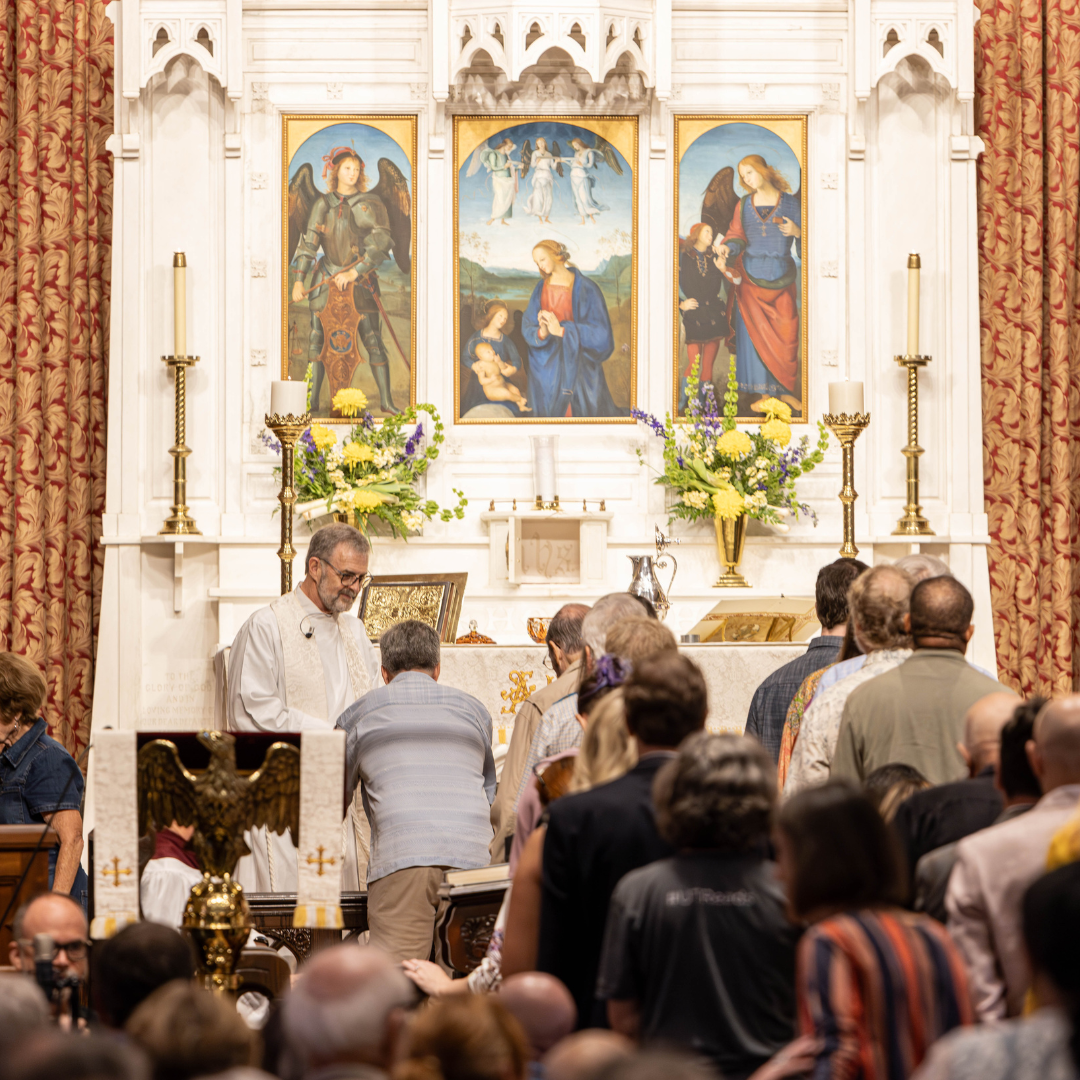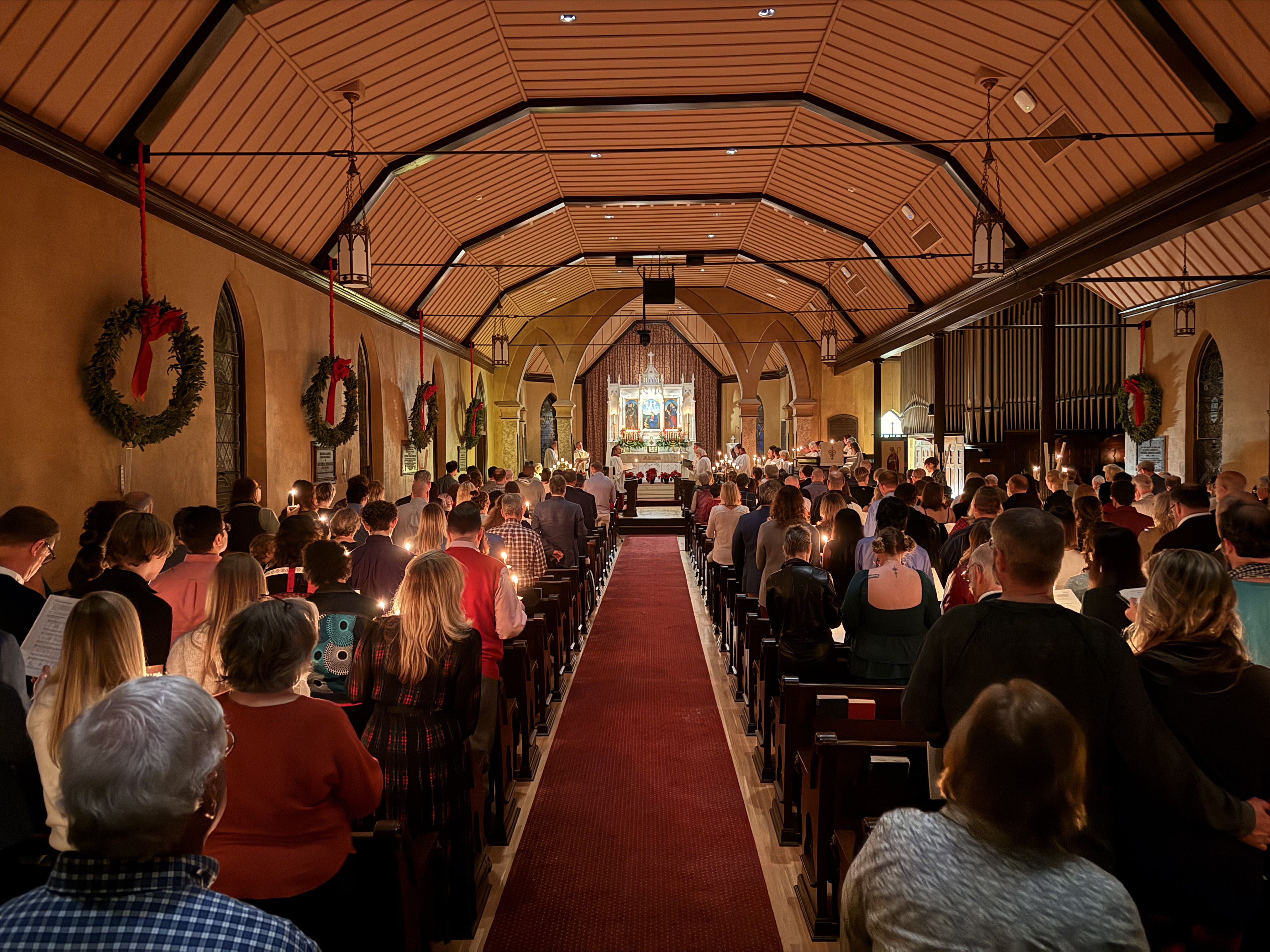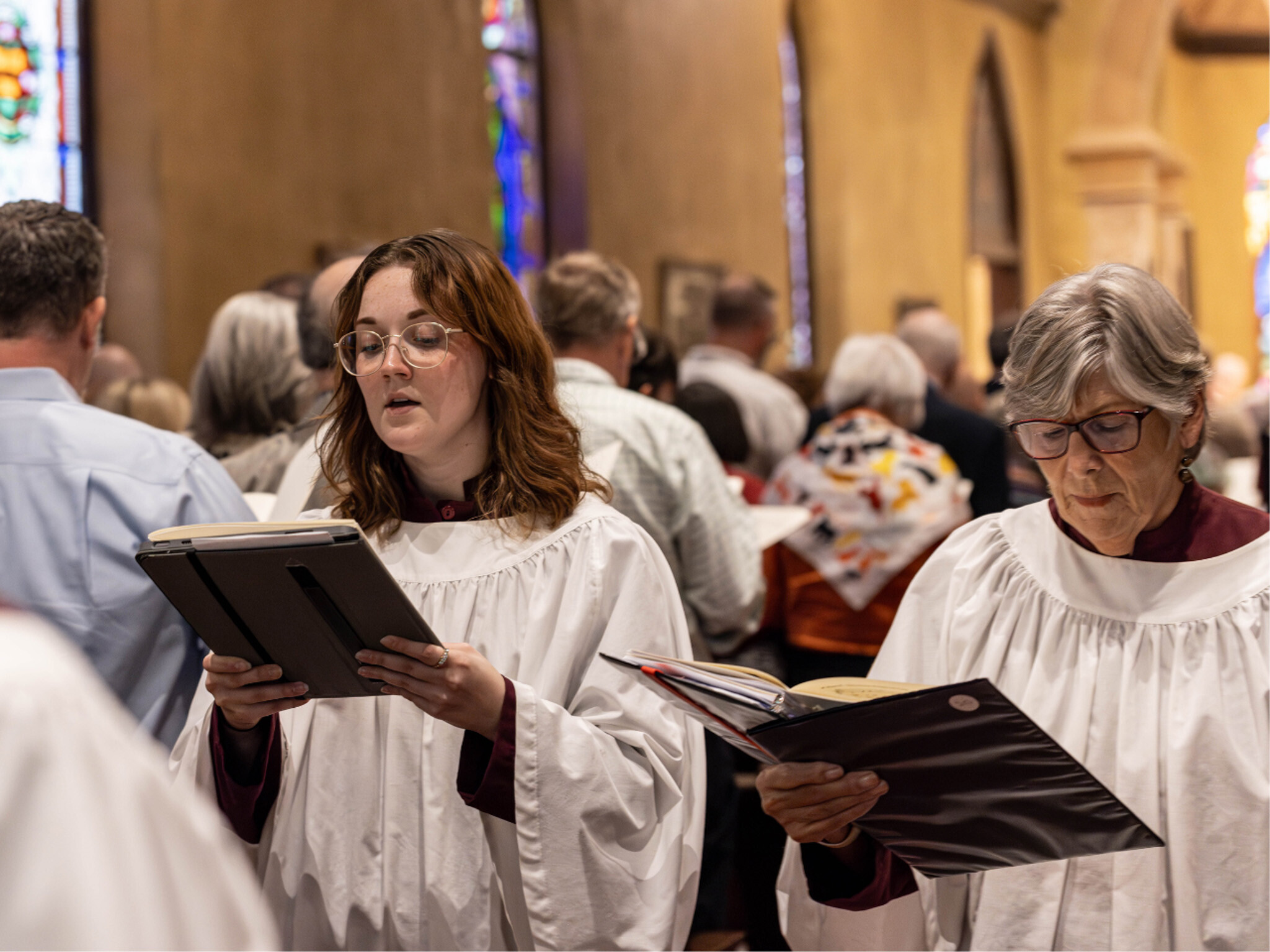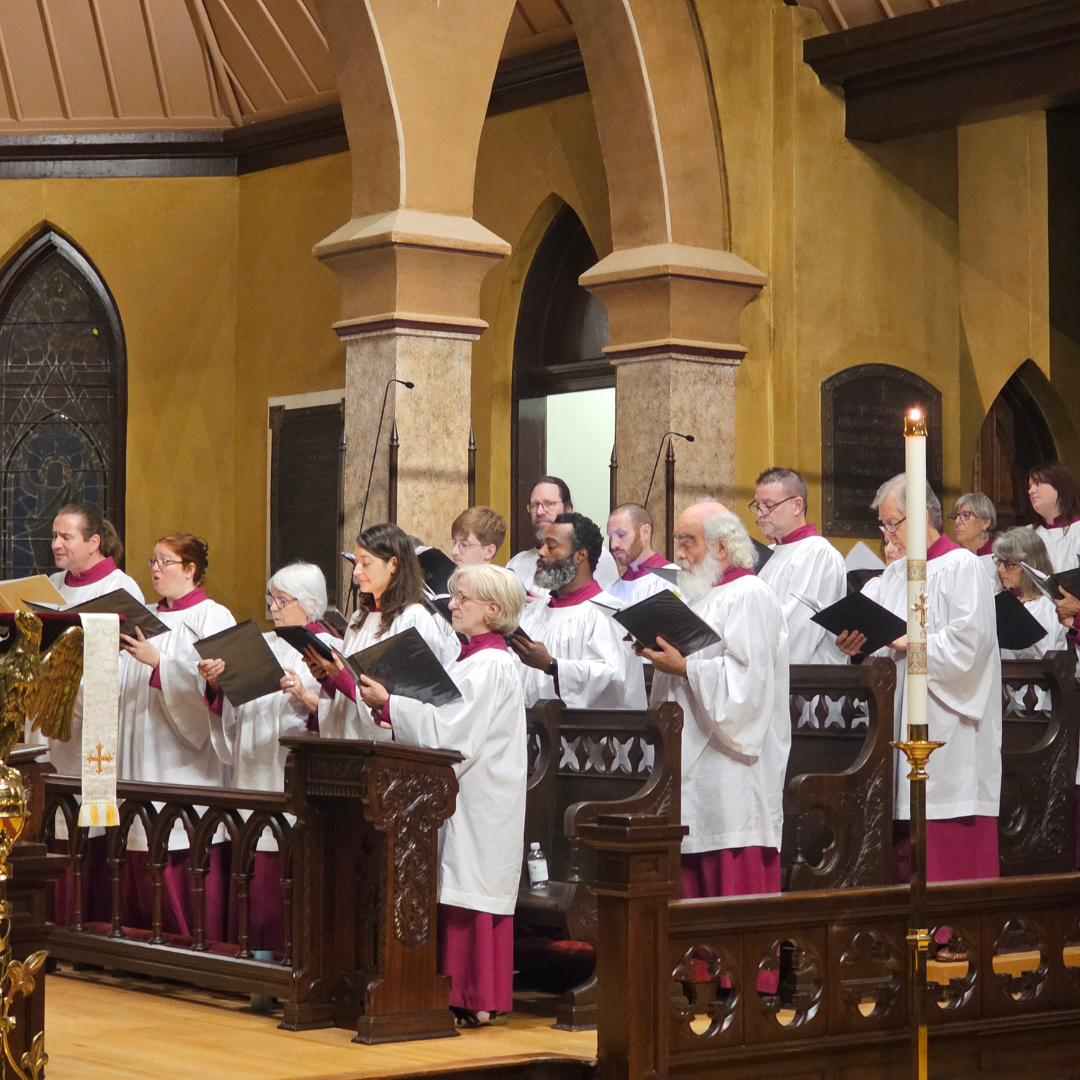
As we worship on a Sunday afternoon rather than at our usual morning times, our entrance hymn invites the whole community to gather and outlines the liturgy and mission of the Church.
Entitled ‘Heavenly Dance’, this hymn is found in the Hymnal supplement Voices Found, a collection of words and/or music by, about, and in a few cases specifically for women. The hymn enumerates some of the components of the Eucharistic liturgy and of the Church’s mission: gathering, singing, praising; hearing and heeding the word of God; offering gifts, sharing the sacramental feast; reconciling and healing. Throughout resounds the call to rejoice, to pray with one’s whole self, to welcome all those made in God’s image. The fourth stanza, as the author wrote it, begins ‘Women and men...’, which was progressive, inclusive language at the time. We now know that for some – some of those who most need, in our society, to hear that they are loved and welcomed and indeed bear the divine likeness – it may not be heard as such. Having had the privilege to know the author, Pat Clark, for some years until her death, I hope that she would sanction my emendation of this phrase to ‘Siblings in God’, with a concomitant change in the third line to maintain the half-rhyme. At the least, I know we would have had a vigorous and mutually enriching discussion about it! The text is set to David Johnson’s infectious tune written for ‘Earth and all stars’.
The Gospel appointed is St Luke’s version of the Beatitudes, less familiar than the Matthean version. Luke’s version is more direct, less ‘spiritualized’, than Matthew’s: blessings are promised not for the poor ‘in spirit’, but for the poor, full stop; not for those hungering ‘for righteousness’, but for those who are just hungry. Even more starkly, the blessings are followed by announcements of woe to the rich, to the sated, to the merry, to those held in high regard by the world. This message has been relevant in every age; it is relevant now: to truly follow Christ, to see and interpret and speak to the world through his eyes and his words, will invite hate, exclusion, defamation – and, we are told here and elsewhere, such treatment will be a sign that one is on the right path, and thus a cause for the greatest joy. Our Old Testament Lesson (Jeremiah 17) and Psalm (1) contrast these ways of the righteous and the wicked by means of images of flourishing and withering, vivid in the ancient world and most urgently timely in ours. The Choral Scholars sing St Matthew’s version of the Beatitudes to a simple chant formula, interspersed with a Latin antiphon summarizing the text, while the Children’s Choir sings the 13th-century Richard of Chichester’s familiar prayer ‘Day by day’, a simple entreaty for divine aid in following the true Way. The modern musical setting is by Mark Schweizer.





Login To Leave Comment